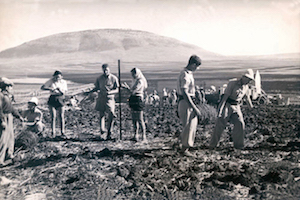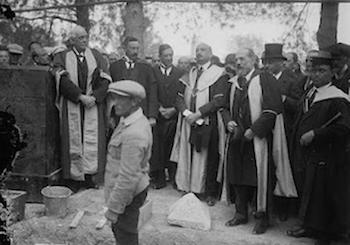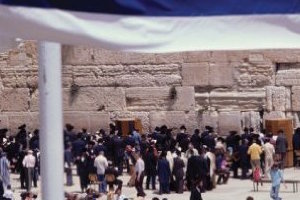Return to Zion: The History of Modern Israel
by Eric Garman

The history of modern Israel is a story of ambition, violence, and survival. Return to Zion traces how a scattered and stateless people reconstituted themselves in their traditional homeland, only to face threats by those who, during the many years of the dispersion, had come to regard the land as their home. This is a story of the “ingathering of the exiles” from Europe to an outpost on the fringes of the Ottoman Empire, of courage and perseverance, and of reinvention and tragedy.
The author, Eric Gartman, focuses on two main themes of modern Israel: reconstitution and survival. Even as new settlers built their state they faced constant challenges from hostile neighbors and divided support from foreign governments, as well as being attacked by larger armies no fewer than three times during the first twenty-five years of Israel’s history. Focusing on a land torn by turmoil, Return to Zion is the story of Israel—the fight for independence through the Israeli Independence War in 1948, the Six-Day War of 1967, and the near-collapse of the Israeli Army during the 1973 Yom Kippur War.
Gartman examines the roles of the leading figures of modern Israel—Theodor Herzl, Chaim Weizmann, David Ben-Gurion, Golda Meir, Moshe Dayan, Yitzchak Rabin, and Ariel Sharon—alongside popular perceptions of events as they unfolded in the post–World War II decades. He presents declassified CIA, White House, and U.S. State Department documents that detail America’s involvement in the 1967 and 1973 wars, as well as proof that the Israeli attack on the USS Liberty was a case of mistaken identity. Return to Zion pulls together the myriad threads of this history from inside and out to create a seamless look into modern Israel’s truest self.
WHAT READERS HAVE TO SAY
- "A thorough, proficient overview that quietly hums a pro-Jewish tune."—Kirkus (Kirkus)
- "What the importance and uniqueness of this book is that it pulls together the threads of history and in doing so we get a look into the modern state and a true picture of Israel." — Amos Lassen, The Ingathering of The Exiles
- "Readers interested in a concise history of Israel, especially those who believe in her right to exist, will appreciate this book."—Laurie Unger Skinner, Library Journal (Laurie Unger Skinner Library Journal 2015-10-15) [Amazon Reviews]
- “Highly readable and engaging; a persuasive effort to explain the story of Israel—what happened and why. New data from declassified U.S. documents are welcome and illuminating.”—Daniel Mandel, ZOA Center for Middle East Policy and author of H. V. Evatt and the Establishment of Israel (Daniel Mandel 2015-03-04)[Amazon Reviews]
- “Those nonspecialists and younger readers seeking a . . . clear introduction into the dramatic rise, existential vicissitudes, and heroic accomplishments of the State of Israel will find Eric Gartman’s book ideal for their purposes.”—Howard Sachar, professor emeritus at George Washington University and author of A History of Israel: From the Rise of Zionism to Our Time (Howard Sachar 2015-07-21)[Amazon Reviews]
DISCUSSION QUESTIONS
- The author claims that an unlikely series of events made the creation of Israel possible, including the Balfour Declaration, the British Mandate, the Arab Revolt, and the Holocaust, among others. Why does the author consider these events unusual? Do you agree?
- In addition to the well-known events of Israel’s pre-history (the Balfour Declaration, UN Partition Plan) some lesser-known episodes are emphasized, including the assassination Alexander II, Churchill’s 1922 White Paper, and the Transfer Agreement with Nazi Germany. Why are these also important?
- It is often asserted that the Holocaust led to the creation of the Jewish State, as the UN voted for statehood partially on the basis of the genocide as proof of need for Jewish safe haven.While the author agrees that the Holocaust led to the creation of the State of Israel, he does not accept that the UN vote was decisive. Why does the author disagree, and what does he claim was the main role(s) of the Holocaust in creating Israel?
- Israel was heavily outnumbered in all of its wars with the Arab states, yet managed to win nonetheless. How does the book explain these victories?
- The author claims that Israel’s creation and survival would not have been possible without outside help. What were some of these interventions and how did they change the course of Israel’s history?
- At what points was Israel closest to be being defeated? How could history have turned out differently?
The Reading Israel Book Club's Book of the Month
Every month, the Reading Israel Book Club at Israel Forever brings you a new literary delight to grow your Israel connection through the written word.
We hope that you enjoy our selections and participate in discussion not only with your friends and family but with an international community of readers in our open discussion group on Facebook.






